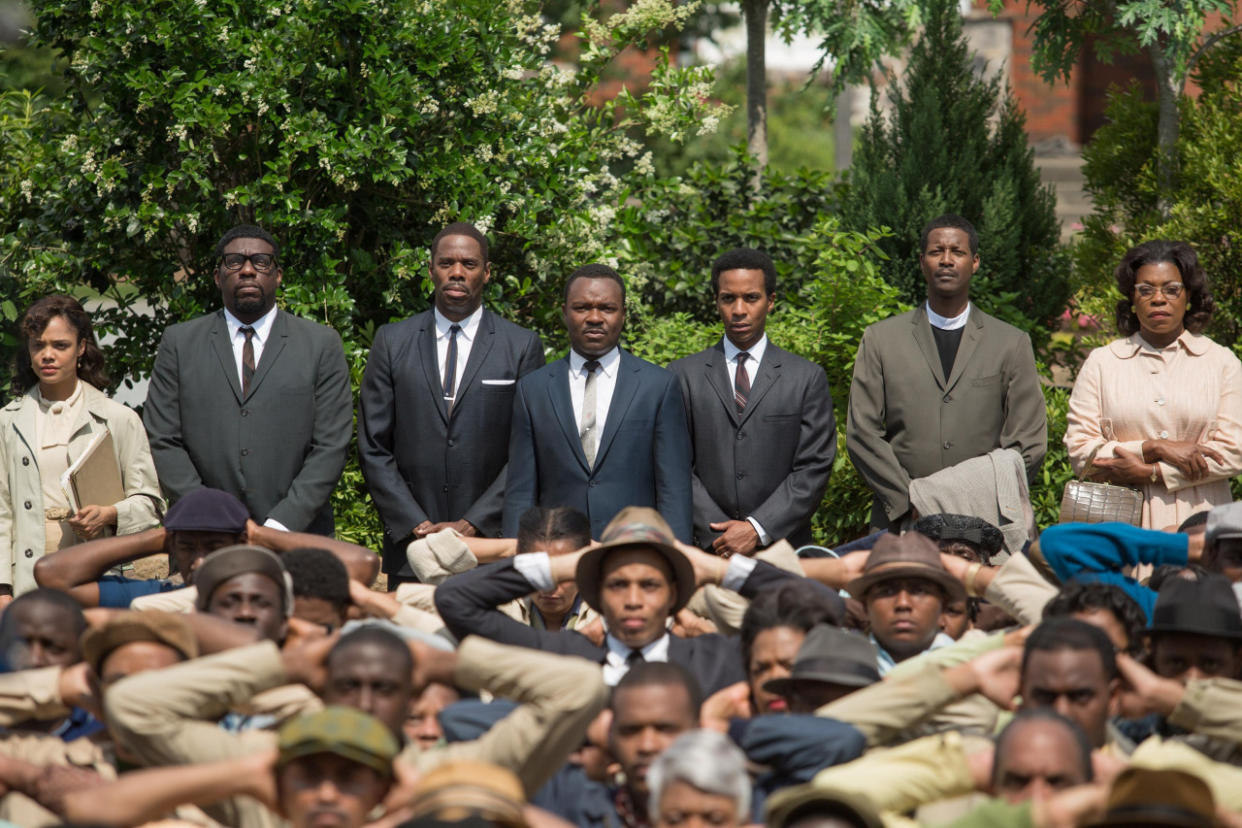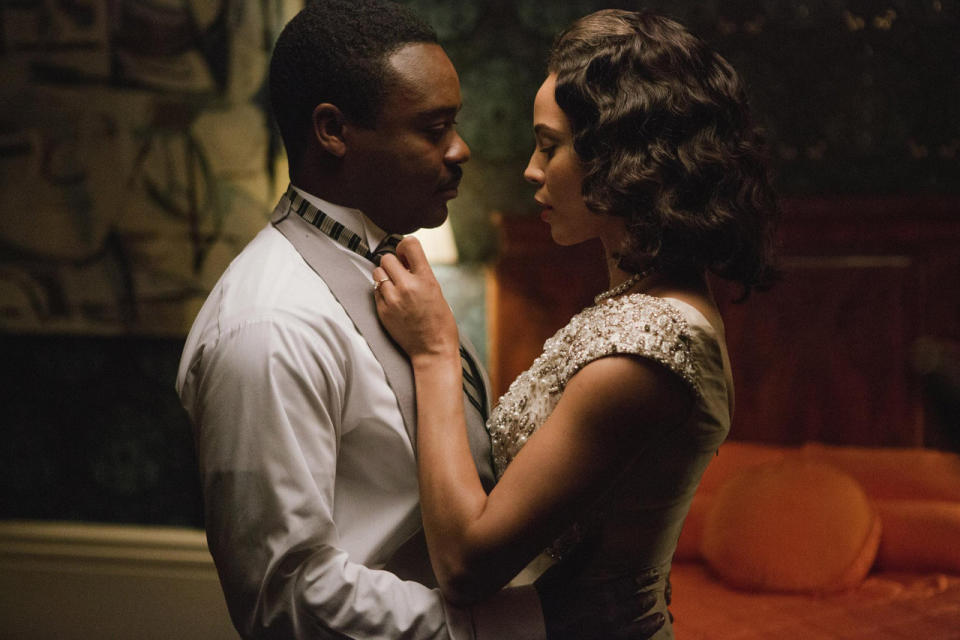'Selma' Director Ava DuVernay on the 'Ongoing Assault on Human Rights'

Director Ava DuVernay’s stirring Martin Luther King Jr bio-drama Selma had its first New York screening on Monday night, and — just as it did at last week’s AFI Fest premiere — was met with a standing ovation and gushing praise.
The film, which stars David Oyelowo as Dr. King, examines the crucial period in 1965 during which the civil rights movement put its efforts in voting rights. Thousands flocked to Alabama and made national headlines when they marched from Selma to the state capitol in Montgomery. Selma takes a look at many facets of that event, presenting incidents both political — Tom Wilkinson plays President Lyndon Johnson, who is both foil and friend to King — as well as personal, even delving into King’s marital infidelities.
DuVernay introduced the film and, afterwards, held a Q&A session with her Selma cinematographer Bradford Young (Ain’t Them Bodies Saints and the upcoming A Most Violent Year). He was asked by actress Adepero Oduye (Pariah), how he was able to create his art in an industry still touched with racism and injustice.
“This is all I have. As a young black man, and as a black man with a family, this is how I keep myself from going to jail,” Young said (hat tip to HuffPost). “I’m not going to let them undermine this. Every bit of energy I put into this, is so we can collectively not be undermined. I know that seems utopian in the sense that this is just a movie, but for a lot of us who have been continuously shut out of it — and for me in particular, as a cinematographer of color — I don’t see myself.”

Oyelowo (left) and Carmen Ejogo play Dr. King and Coretta Scott King in Selma
Young quoted his grandfather, saying that, “I respect Marcus Garvey, but I ain’t going back to Africa with him — I’m going to get mine right here,” and explained that his art is the one thing he refuses to allow racism to touch or corrupt.
“They can intrude in my house. They can make me wonder in fear the fate and destiny of my son, who is a 15-month-old black boy, and it’s real for my wife and I,” he said. “That’s something we talk about everyday. They can come in my house in many different ways. They can come in my space in different ways, but I refuse to let them come into this space. Because this is what makes me a good husband. This is what makes me a good father. This is what makes me good brother. A good collaborator. This makes me a good community member.”
DuVernay, meanwhile, spoke to the fact that at the same time as the movie was being screened, Missouri governor Jay Nixon was declaring a state of emergency ahead of the grand jury announcement regarding the Michael Brown murder in Ferguson.
“It’s been on a continuum, it didn’t stop and start again, it’s an ongoing assault on human rights, on the rights of people of color in this country,” the director said. “You can’t understand anything about it, unless you go back to the beginning, and this isn’t even the beginning, this is just a part of the story on the continuum that we’re on. We were looking at these images in the editing room and then watching MSNBC seeing very similar images happening at that very moment in Ferguson.”
DuVernay, who said something similar when speaking to Yahoo Movies late last month, drew parallels between the civil unrest in Ferguson and the efforts of then-Alabama governor George Wallace to stop King from leading his march to Montgomery.
“When you’re in the present moment, you’re hunkered down,” she said, “but when you take a macro approach, you know that this is ongoing, the same thing for five decades: A brother being shot, nobody standing up for it, rights not being properly addressed, the power of protest and people trying to be heard, and that’s happening not just here, it’s all over the world.”
Selma comes out in limited release on Christmas Day.
Watch the trailer for Selma below:

